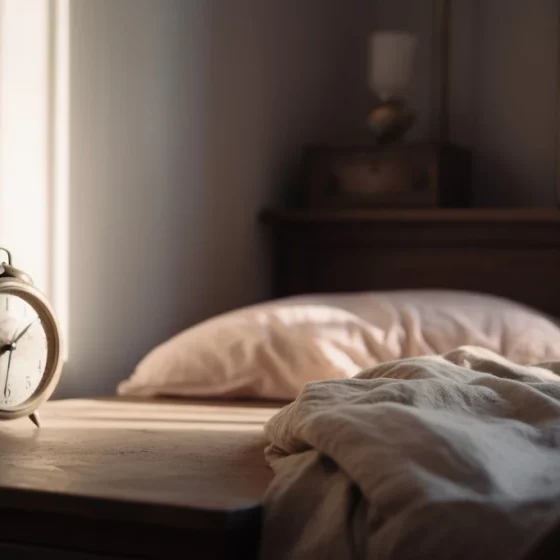Transform your nightly routine with effective sleep hygiene! By prioritizing a conducive environment and healthy habits, you can enhance your sleep quality significantly.
Follow our practical advice to establish the perfect conditions for a restful night’s sleep. Say goodbye to sleepless nights and hello to rejuvenating rest!
Establish a consistent sleep schedule.
Going to bed and waking up at the same time every day helps regulate your body’s internal clock. This consistency makes it easier to fall asleep and wake up naturally, improving the quality of your sleep.
Optimize your sleep environment temperature.
Keep your bedroom cool, ideally between to 18 – 22 degrees Celsius, to help lower your body temperature and initiate sleep.
Noise.
Reduce noise disruptions with sound machines or earplugs if necessary.
Light.
Minimize light exposure with blackout curtains or an eye mask. Darkness signals to your body that it’s time to wind down.
Create a pre-sleep routine.
Engage in relaxing activities such as reading, journaling, taking a warm bath, breathing exercises or meditative practices about 30 minutes before bed. These activities signal to your body that it’s time to calm down and prepare for sleep.
Manage screen time.
Avoid blue light from screens of TVs, smartphones, and computers at least an hour before bedtime as it can disrupt your body’s ability to fall asleep. Consider using apps that filter blue light or wear glasses that block blue light if necessary.
Mindful eating and drinking.
Avoid heavy meals, caffeine, and alcohol at least 3 hours before bedtime. These can disrupt sleep by causing discomfort, increasing heart rate, or necessitating frequent bathroom trips.
Physical activity.
Regular exercise can help you fall asleep faster and enjoy deeper sleep. However, exercising right before bed can be stimulating, so it’s better to complete any vigorous activity in the morning time or at least 3-4 hours before bedtime. Include some breathing exercises post PM workout to down regulate your nervous system.
Mindfulness and relaxation techniques.
Techniques such as deep breathing, yoga, or guided imagery can reduce stress and anxiety, making it easier to fall asleep. Practicing these regularly can significantly improve your sleep quality over time.
Implementing these tips requires commitment and may need some adjustment based on individual needs and lifestyles. However, the benefits to your sleep and overall health can be substantial.
